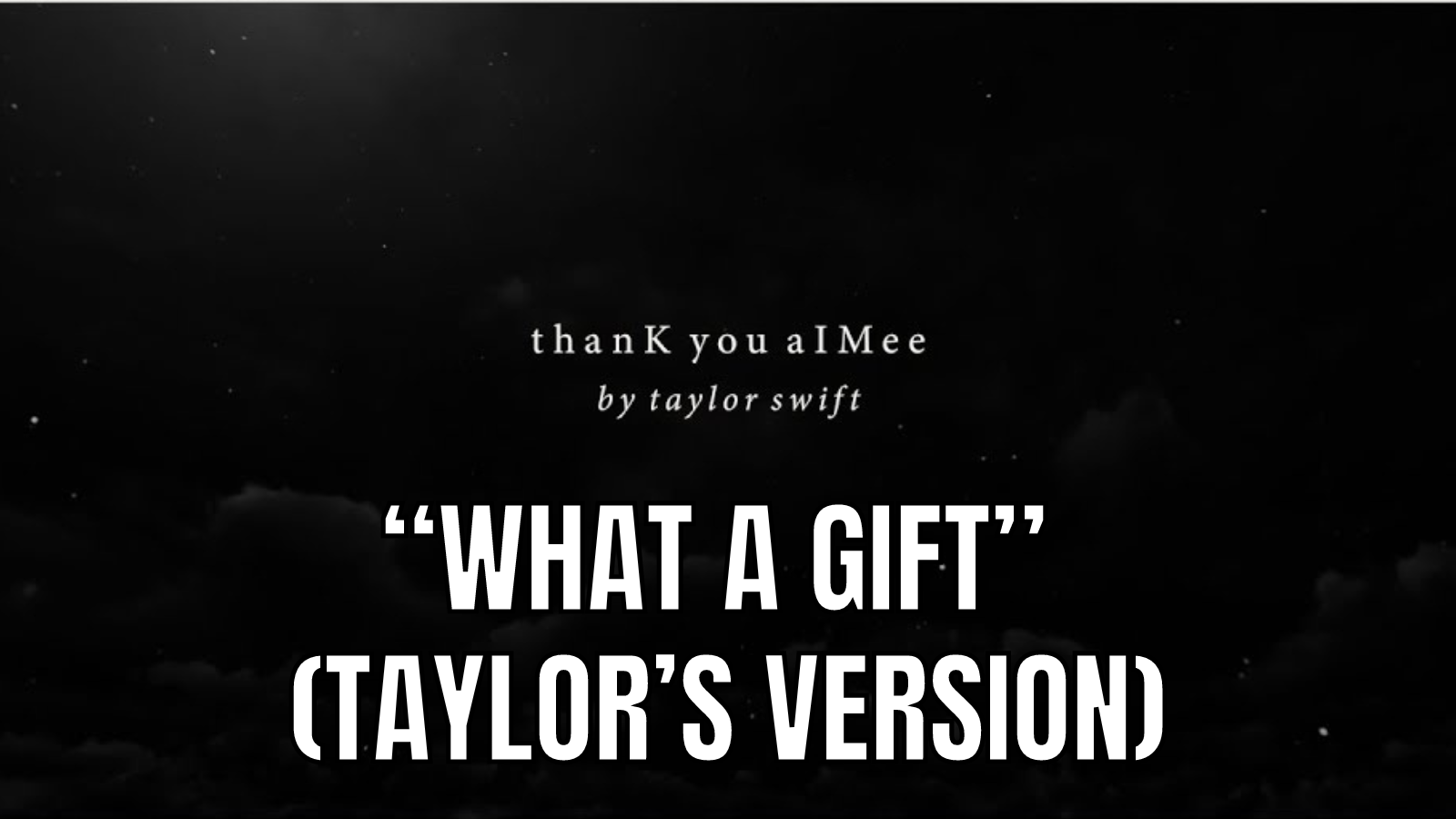Everything Is a Gift: My Growth Mindset Mantra
Everything is a Gift…
…if you squint hard enough.
This isn’t just an aphorism or a metaphor leading into my message for this piece; it’s my mantra.
How it’s applied in practice varies from case to case, but a representative example occurred recently during a high-stakes external presentation. A team member—new to this type of presentation—had prepped a slide deck that included playing a 90-second video clip. During run-through, the video worked flawlessly. In the glare of the metaphorical stage lights, though, with external stakeholders watching, the audio glitched out at the same time as a series of motorcycles and sirens drove past her apartment.
Although she recovered well, afterwards she said it was utterly mortifying. I brought up my mantra. We shifted topic: where is the gift in all this? We came away with one minor process change (“close our windows before presenting”) and one major one (a new approach to audio during presentations).
Let’s zoom out. Everything is a gift, if you squint hard enough: it’s a reminder to reflect, consistently and with purpose. As I’ve argued before, reflection is an operator’s superpower. This is a practice that I believe in deeply, and without which I do not think leaders in large organizations can function at full capacity.
The Role it Plays
In practical terms, I use the mantra as a sort of verbal touchstone during meetings, planning sessions, and even heads-down work. Its wry inversion of negativity reliably makes people chuckle when I invoke it during challenging conversations, and I’ve learned that saying it aloud can diffuse tense moments and break through impasses.
Using the mantra this way is partly a matter of my personal leadership style: I delight in creating joy and laughter, finding both to be uniquely effective at reaching certain people and creating new willingness to collaborate, coordinate, and compromise. My mantra is a half-joke, half-lesson, just enough to crack through an icy calm. Hell, it even works on Board members.
In the spirit of shaping one’s environment to encourage useful habits, “everything is a gift” has become such an ingrained part of my mental landscape that I wear a bracelet to remind me of its importance.
“Everything is a Gift” is too many characters for my favorite dainty bracelet from GLDN (link for $10 off!), but “What a gift” fits perfectly! “Strength” is my 2024 word of the year, so I wear that as another daily reminder.
The piece is almost like a health alert bracelet for my mental well-being—in case of distress, consult the information contained herein. And, of course, reflect accordingly. My team knows it on sight, so I don’t even need to say the phrase out loud. Lift my hand on zoom, and I get a chorus of half-exasperated sighs: “yeah yeah, it’s a gift…Okay.” And we refocus.
Reflection, Mindset, and Finding Opportunity
Okay. Brass tacks. “Everything is a gift, if you squint hard enough.” The mantra is a reminder to return to a growth and learning mindset when I’ve strayed out of it or hit a wall. It is also, complementarily, an instruction to keep squinting if the gift isn’t immediately clear—in other words, to allot the time, space, patience, and persistence needed for reflection to uncover the lessons afforded by the challenges I currently face.
Sometimes, those reminders apply to large-scale problems. I am fortunate to work in an organization that places real value on reflection practices. We regularly conduct retrospectives to distill learnings on what worked well in each project. In these sessions, we’re consistently able to codify successful practices and commit to high-likelihood-of-success approaches to upcoming projects. Given the value-add, I can’t imagine running a company without retrospectives along these lines, and it’s a practice I’ll bring to any future organization.
At other times, I refer back to the mantra during personal work. An underappreciated aspect of C-Suite and senior executive positions is that in most cases, you only encounter the thorniest, most solution-resistant problems. Everything else gets handled before it lands on your desk; if someone else had the tools and perspective to get it done, they would have. As a COO, then, you’ll find yourself staring down some truly intractable problems, and there’s good news there: these are often the issues that contain the most valuable lessons.
Part of the idea behind “everything is a gift” is that these kinds of lessons only pay dividends if we invest the time required to internalize it. Brandon Bouchard offers a great description of what that can look like in his (excellent!) book High Performance Habits.
“I began an evening journaling activity in which I wrote down three things that made me feel good during the day. Then I took just a few moments to close my eyes and actually re-live them. I put myself right back into the situation I experienced. I see what I saw, hear what I heard, feel what I felt. Often, in reflection, I appreciate the moment with even more care and focus than when it happened.”
Exercises like that one can be immensely powerful. I myself am a thinker—a recovering ruminator—and my mantra channels my inclination to re-think and second-guess into something much healthier. It asks, what gift can be found here? What could I have done better? What concrete changes will I make the next time this situation coalesces?
Actionable Steps
I recommend that every leader find their own mantra. The goal is to have a verbal lever—something that triggers a useful, broadly-applicable mental habit that reliably improves your approach to problems.
I suggest starting with affirmations and mantras that work for others; start with inspiration rather than a piece of blank paper. Don’t skip over a phrase just because it looks like a platitude, either. Clichés are clichés for a reason, and your goal here is efficacy, not creative originality.
Once you find a phrase that resonates deeply with you, incorporate it into your day at key moments. Allow it to be a support or guardrail as you seek to re-frame your thinking and get around mental blocks. Make it a phone wallpaper, or write it on a post-it in your workspace.
Mantras like these have no power on their own. They are useful only when wielded with a productivity-focused mindset and the kind of self-interrogating mental flexibility that is a requirement for effective high-level leadership. If you’re reading this article, you have those skills. This is just another tool with which to apply it.

